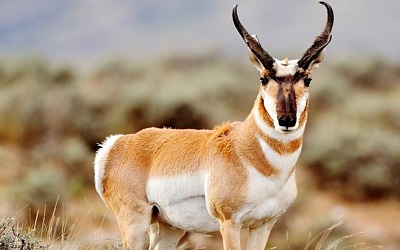随着PTE考生对PTE口语和PTE听力的重视,大家口语和听力的分数得到极大提高,但是PTE阅读渐渐成为考生们新的难题。
墨尔本悉尼文波PTE特别为PTE考生们挑选了适合练习PTE阅读的文章,主题,内容,长度都与PTE阅读题中的文章相似。激活学过的词汇,更新新的词汇,提高阅读速度,全面提升自己的阅读能力。
Where cars now drive along congested roads in the heart of modern Los Angeles, sabre-toothed cats once roamed. They stalked prey that ranged from hoofed mammals to creatures resembling elephants. The ferocious cats competed with dire wolves, American lions and short-faced bears.
During the Pleistocene, the geological period that began just over 2.5 million years ago, North America experienced a series of ice ages. During these freezes and thaws, giant mammals thrived in the woodlands and savannahs of Southern California. Primitive cheetahs chased antelope-like pronghorns over miles of grasslands, while mastodons roamed in dense herds.
But suddenly, around 11,000 years ago, almost all of these species died. Mammoths, giant sloths and camels all disappeared completely from the Americas. Only one large plant-eater remained, nearly unchanged since it first began racing through the south-west 30,000 years ago: the pronghorn.
Nobody is really sure what caused the extinction event. It has variously been blamed on fluctuating temperatures and climates, the encroachment of man, invasive plants or new bacteria, or all of the above.
sabre-toothed: adj. 长着锐利的长犬牙的
ferocious: adj. 凶猛的, 残忍的
dire: adj. 可怕的, 恐怖的
Pleistocene: n. & adj. <地>更新世(的)
savannahs: n. (热带和亚热带)无树大草原
cheetah: n. 印度豹,猎豹
pronghorns: n.叉角羚
mastodons: n. 乳齿象,庞然大物
herds: n. 畜群
encroachment: n. 侵入,侵占
invasive: adj. 扩散性的





